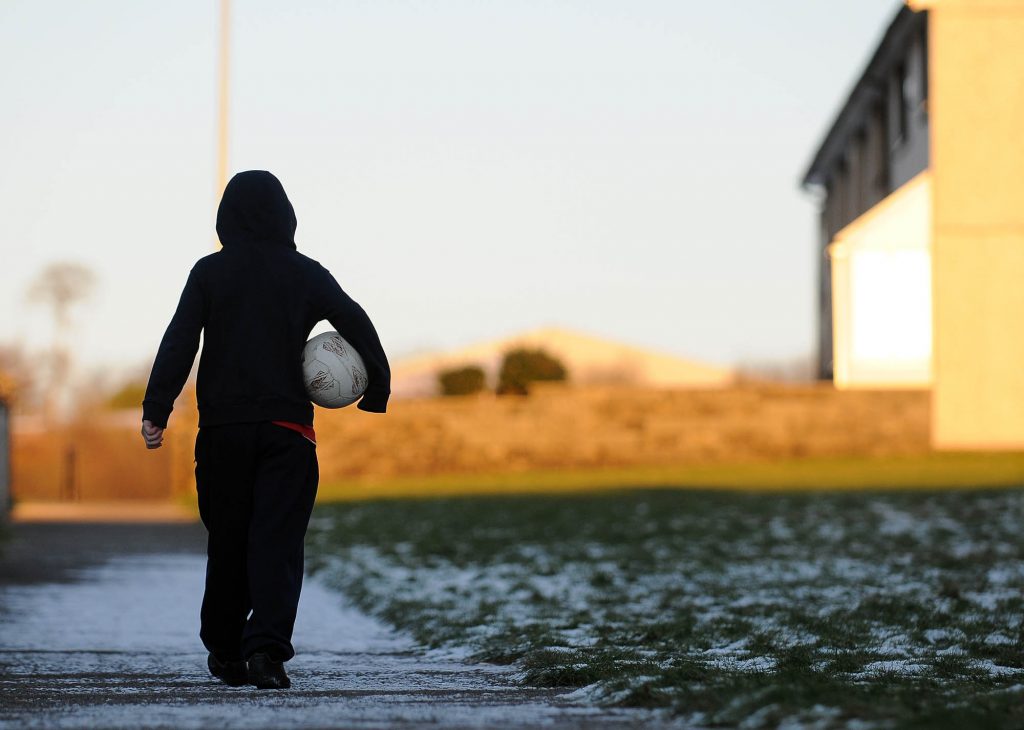Social inequalities such as poverty and disability lead to more school exclusions. Casting children out only entrenches inequality, writes Sarah Stone
In 2018 Samaritans Cymru published a report on the link between socioeconomic disadvantage and suicidal behaviour and how we can find a way forward in Wales. The connection between disadvantage and suicide is well evidenced, the question is what can we do to tackle it. Part of the answer lies in raising awareness among the many agencies who work with those experiencing both socioeconomic disadvantage and emotional distress.
We set out ten recommendations for Wales in our report, one of which concerned addressing the cost of exclusion from education. We recognised that exclusion from education is a significant issue which is linked to factors that increase the risk of suicide.
Exclusion is far more than the act of removing a child from school. Exclusion from school is linked to a much wider set of recurring inequalities, circumstances and consequences including suicide risk, poverty, loneliness and social isolation, Adverse Childhood Experiences (ACEs) and the criminal justice system. Its impact on the life chances of young people can be far reaching. We suggested that exclusion and the reasons for it should be identified and mapped across Wales so that we can better understand the patterns and trends surrounding it.
We have previously raised concerns arising from one of the specific findings of the Thematic review of deaths of children and young people through probable suicide, 2006-2012. It found that many of them had not been in education, employment or training when they died and as such, received little or no support from services. It also identified that many had specific educational needs or had restricted educational achievement.
We wanted to explore this issue further and to engage with a range of informed individuals across Wales. In early 2019, we held a seminar which was attended by representatives from schools, local government, the health service, third sector organisations, universities and the Children’s Commissioner for Wales. Our latest report reflects their discussions and offers some recommendations for next steps which can be taken in response to the issues which are emerging. We need to know more about the situation of children and young people who are not in education, its impact on them and what works to address it. We also need to act now on what we do know.
We understand that experiences of childhood adversity, negative life events and the cumulative effects of stress are associated with feelings of entrapment and hopelessness. Loneliness and isolation and the lack of belonging to a group, reduces the positive sense of belongingness we all need to experience; this springs from being an accepted member of society.
This can result in extreme emotional distress including suicidal thoughts. We can learn from each other about what works to reduce exclusion, but the first step is to recognise the importance and great gain for individuals and society at large of doing this, particularly in acknowledging its links to inequality. If you’re out of school, you can be out of your only source of support and community.
Within our report, the theme underpinning all our recommendations is the need to shift our focus from firefighting to prevention across schools in Wales. Investment in being able to identify and help those at risk of experiencing exclusion is urgently needed. Investing in prevention and early intervention can reduce economic, social and most importantly, human costs. Right at the top of our recommendations is a fundamental call to recognise and promote understanding of the direct link between exclusion, inequality and Adverse Childhood Experiences (ACEs).
Our report demonstrates that children and young people are more likely to experience exclusion from education if they are experiencing social inequalities such as poverty, disability and/or exposure to ACEs. The adverse effects of exclusion are often the very same factors which predicate exclusion in the first place, along with loneliness and social isolation, risk of homelessness and declining mental health. Exclusion is often therefore part of a self-perpetuating cycle in which inequality is entrenched.
The Welsh Government, educational leaders and staff, the health and social care sector and wider support agencies should recognise this link between exclusion and inequality. In order to develop ways of tackling and reducing exclusion, we must understand the prevalence of exclusion, the complexities of its causes, the methods through which it is carried out and its impact on individual young people and the wider policy aspirations for Wales.
School exclusion through whatever means is strongly linked to disadvantage. Addressing it also represents an opportunity to intervene in the cycle of ACEs. Avoiding exclusion should be understood as part of a wider ambition to intervene in experiences of disadvantage at a formative stage in a young person’s life.
Intervention to reduce ACEs can have a major effect on health, poverty and exclusion in Wales and must be developed and promoted through public and professional awareness. Schools, local health services, local authorities, public services and the wider public sector must invest and work to reduce ACEs, their impact on individuals and, most significantly, understand the benefits of intervening in the cycle.
Excluding children from education can deny them of their life chances. There are consequences for us all. The first step is recognising the issue and collaborating to work out how we can go forward. Our report is a contribution to this much needed debate, and we hope it will stimulate further thinking, understanding and action.
Exclusion from education in Wales: The hidden cost is available to view or download at www.samaritans.org/wales
All articles published on Click on Wales are subject to IWA’s disclaimer.





